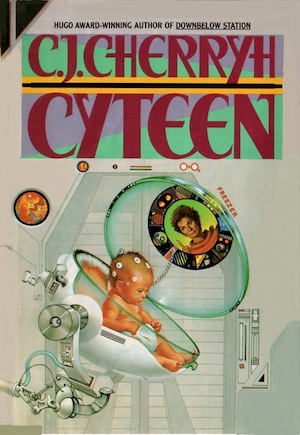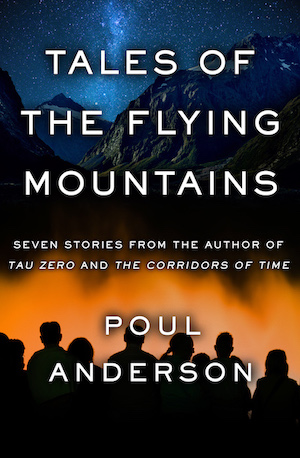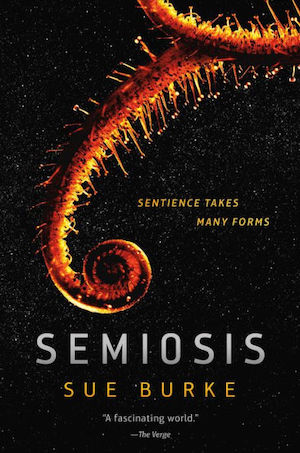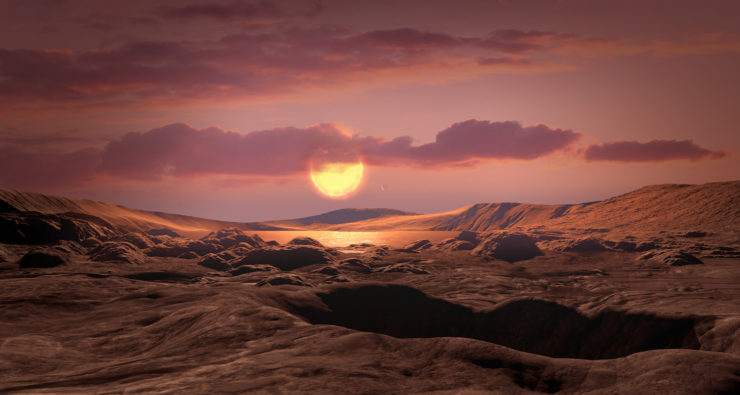The Greeks had a word, hubris, that gets thrown about a lot. I have the impression that it means something like “self-confidence.” Right? Self-confidence is great stuff! Empowering! There are no challenges that human ingenuity cannot overcome: social conflicts, climate change, plagues and pandemics. We’ll just power through it all like a tank through soap bubbles.
I must admit that not every science fiction author adopts this buoyant stance. Some of them have taken a contrary point of view, in fact, positing that there are some circumstances that will defeat humans, no matter how smart and persevering they are. Circumstances like alien worlds that cannot be terraformed into human-friendly resort planets. Here are five worlds that steadfastly resist meddling…

C.J. Cherryh’s Cyteen, capital of an interstellar great power (Union) and setting for the eponymous novel (published in 1988), is, like the worlds selected for colonization in Brian Stableford’s series, remarkably Earth-like. The air is to a first approximation breathable, the climate is tolerable, there is neither too much water nor too little. Compared to planets like Mars or Venus, it’s a paradise! There is just one minor catch: Cyteen’s biochemistry developed along different lines than did Earth’s. The planet is a “silicate-polluted hell,” lethal to unprotected terrestrial lifeforms. Without high technology to filter the air, Cyteen would be uninhabitable by humans.

Lois McMaster Bujold’s Vorkosigan universe demonstrates that worlds can be in a general sense “Earth-like” while at the same time lacking many essential factors required for a survivable shirt-sleeve environment. Marginal worlds outnumber garden worlds by a considerable margin. Thanks to a desirable location, Komarr (the planet which lends its name to the 1998 novel) attracted investors and colonists, who spent centuries terraforming it. They managed to transform it from an icebox world that would kill an unprotected human in minutes to a (marginally) warmer world on which unprotected humans can survive for a few more minutes. Komarrans are utterly dependent on their advanced infrastructure and life support systems, which no doubt is a huge advantage when it comes to getting maintenance budgets passed.

Donald Kingsbury’s Courtship Rite (1982) focuses on the human cultures that have developed on the arid planet Geta. Geta is inhospitable but not immediately deadly. Humans can breath the air and survive the usual range of temperatures. But native Getan lifeforms are for the most part inedible or even poisonous. A few can be eaten after processing. Human life depends on the eight sacred plants (familiar Earth crops like wheat, soybeans, and potatoes) and on bees. The only meat is human meat. Geta has forced its human population to adapt in ways that may seem shocking to the reader.

In Poul Anderson’s short story “Epilogue” (1962), the good ship Traveler set out from an Earth on the brink of war to settle Tau Ceti II. The Traveler’s poorly understood field drive delivered it to an Earth eons in the future. The Earth of the future is nearly hot enough to boil water. There is no free oxygen; the atmosphere is composed of nitrogen oxides, ammonia, hydrogen sulfide, sulfur dioxide, carbon dioxide, and steam. There is no evidence that organic life survived the war. However, humanity’s replicating machines did survive. In fact, they thrived, shaped by natural selection just as organic life once was. By the time the would-be colonists return to Earth, it has new masters, curious entities alongside whom humans are very unlikely to thrive.

Sue Burke’s Semiosis (2018) begins promisingly enough; a community of idealists sets out to found a new society far from Earth’s violence. Their problems only begin when they wake to find themselves orbiting the wrong world, which they optimistically name Pax. Older than Earth, Pax is home to a rich, diverse biosphere. It’s a world that offers the naive settlers a bewildering range of ways to die. Survival depends on convincing the dominant lifeforms that humans are worth the bother of preserving. That, in turn, depends on humans recognizing those dominant lifeforms for what they are.
No doubt you have your own favourite hellish deathworlds (that’s a catchy title; someone should use it), examples that you are even now leaping to your keyboards to bring to my attention. The comment section is, as ever, below.
In the words of Wikipedia editor TexasAndroid, prolific book reviewer and perennial Darwin Award nominee James Davis Nicoll is of “questionable notability.” His work has appeared in Publishers Weekly and Romantic Times as well as on his own websites, James Nicoll Reviews and Young People Read Old SFF (where he is assisted by editor Karen Lofstrom and web person Adrienne L. Travis). He is currently a finalist for the 2020 Best Fan Writer Hugo Award and is surprisingly flammable.










